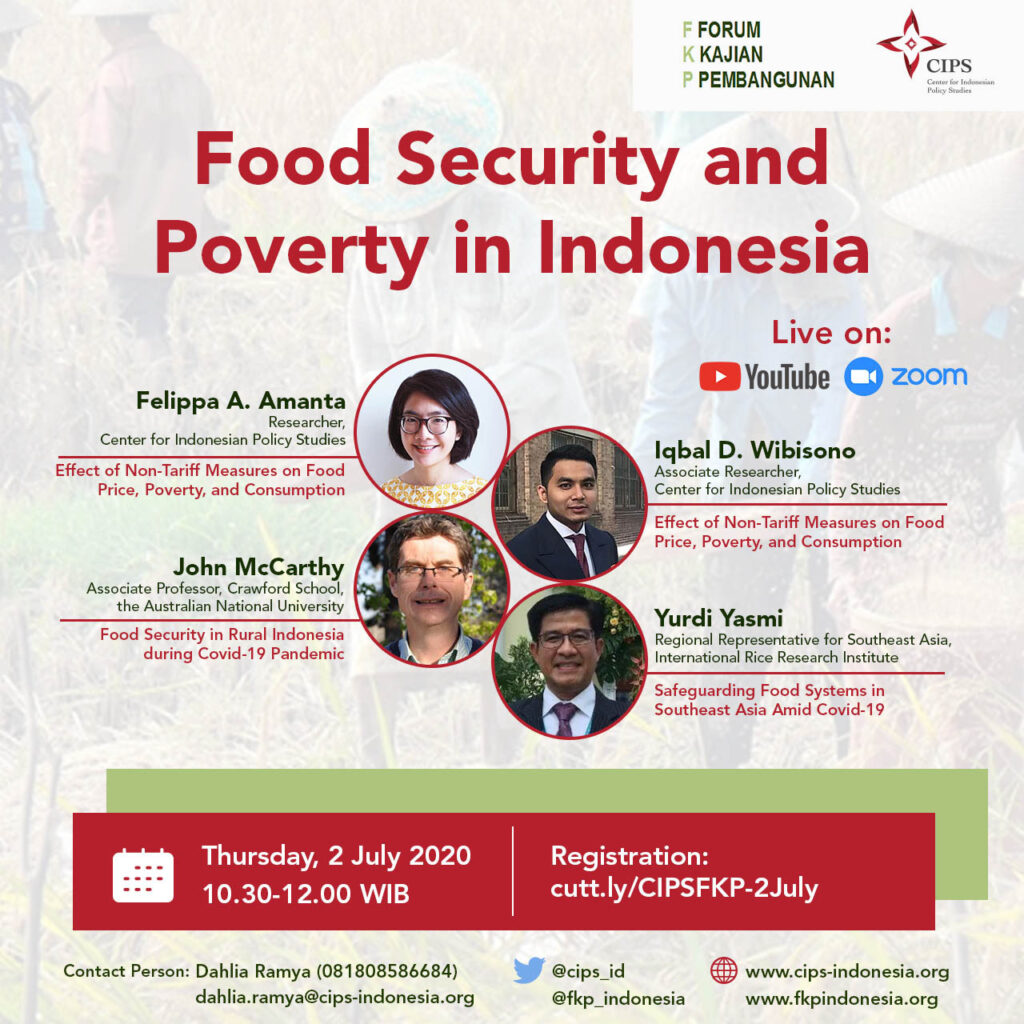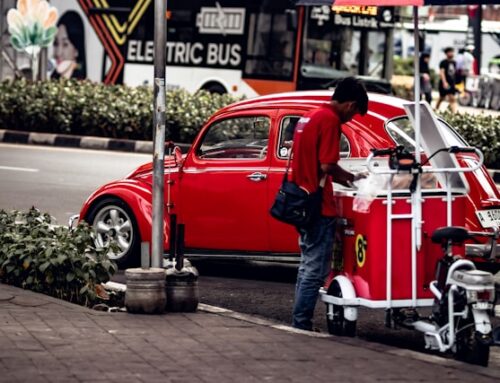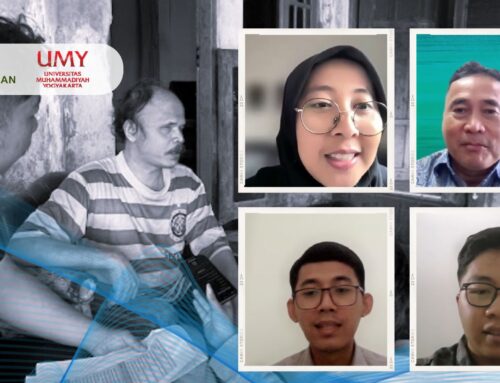One important variable that contributes to the low food security in Indonesia is its high food price. Indonesia’s food price is constantly above international price for staple foods like rice and for other important protein like beef. Studies have shown that one of the contributing factors to the high cost of food price is the use of non-tariff measures, such as quantitative restrictions or other technical barriers to trade that restricts food import. Non-tariff measures affect food prices by adding compliance and transaction costs to border price of food, or by preventing international supply of food to enter Indonesia. During the Covid-19 pandemic, concerns about Indonesia’s food security heightened. Millions of Indonesians have lost their jobs or income. Meanwhile, many provinces experienced food shortages and food price increases, especially in non-Java islands.The webinar will discuss current food security issues in Indonesia, particularly two key topics: 1) the effect of non-tariff measures on food price, poverty, and consumption and 2) how the rural population manages food security during Covid-19 pandemic.
Topics and speakers:
Effect of non-tariff measures on food price, poverty and consumption
Felippa A. Amanta and Iqbal D. Wibisono (CIPS)
Food security in rural Indonesia during COVID-19 pandemic
John McCarthy (Crawford School of Public Policy, The Australian National University)
Safeguarding food systems in Southeast Asia amid COVID-19
Yurdi Yasmi (International Rice Research Institute/IRRI)
Attend on Zoom (registration required) FKP 2 Juli 2020
Attend on YouTube (no registration) https://www.youtube.com/CenterforIndonesianPolicyStudies
Closed caption available (in English)
Slides and video for past seminars:





